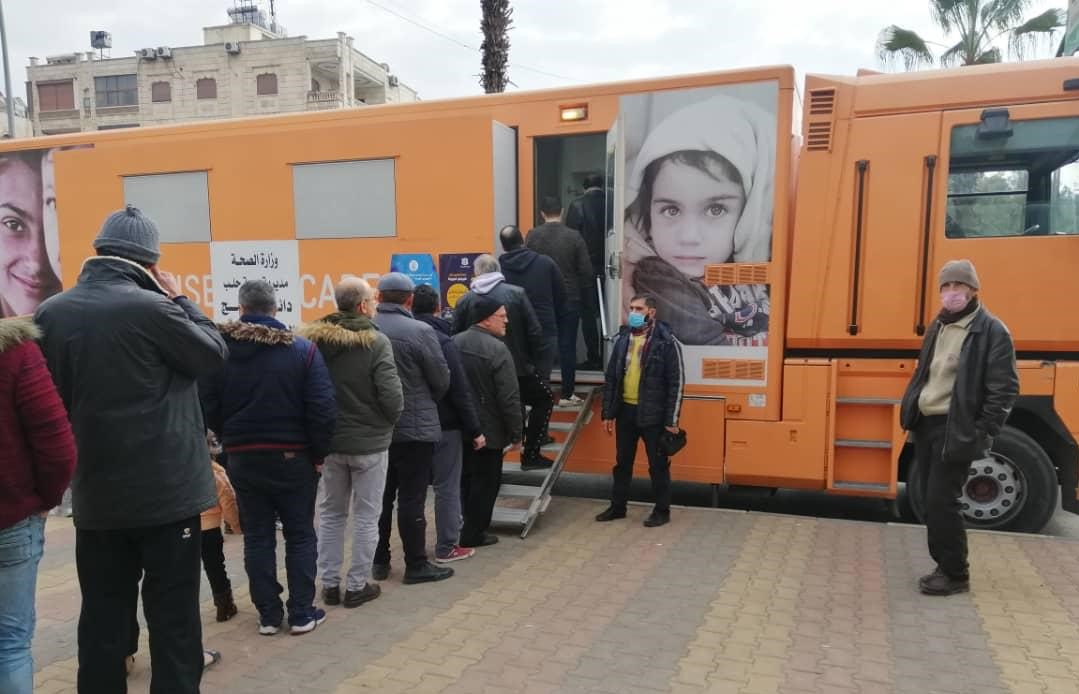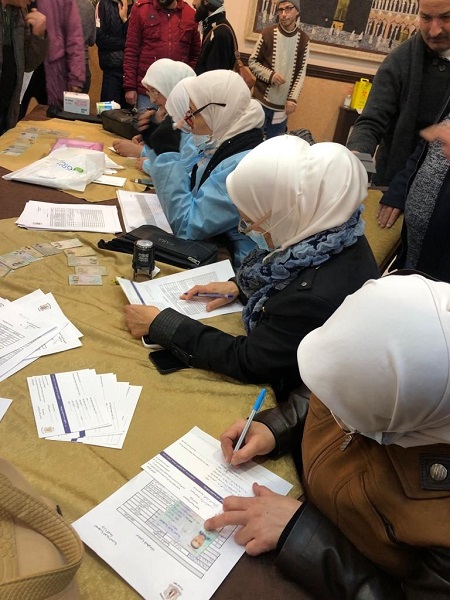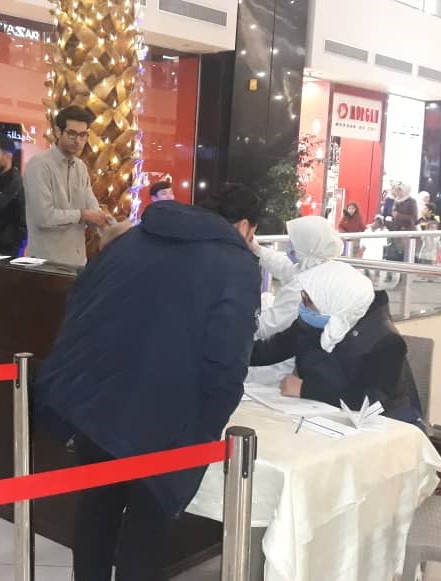
9 February 2022, Damascus – In coordination with the national health authorities, WHO and partners continue to bridge vaccine inequity and increase vaccination rates in the Syrian Arab Republic, aiming for the 40% national COVID-19 vaccination target by April this year.
Although the total number of COVID-19 vaccines delivered to the Syria through the COVAX Facility and bilateral agreements were sufficient to cover 39% of the population as of 27 January 2022, the percentage of fully vaccinated Syrians remains as low as 5%.
 Data registration at Damascus Mosque
Data registration at Damascus Mosque
“At this critical time, all stakeholders should team up to help build people’s confidence in vaccines,” said Dr Akjemal Magtymova, Head of Mission and WHO Representative in the Syrian Arab Republic. “With Omicron and other variants threatening lives, getting vaccinated and adhering to preventive measures is the only solution. Vaccines are safe, effective and free,” Dr Magtymova added.
With WHO supporting the operating costs of vaccine administration, vaccination is now offered in 962 fixed vaccination sites: 39 hospitals and 923 primary health care centres.
Implementing various strategies to scale up vaccination campaigns in the country, the national health authorities are supporting special teams to conduct vaccination at government institutions, universities, and schools. Syrians can also receive the vaccine whether or not they are pre-registered through an online platform.
With an additional 1075 vaccination teams in static locations and 391 mobile teams deployed in all governorates – a total of 5162 health care workers and over 420 supervisors – the teams are operating at maximum capacity. The WHO-supported mobile teams are providing vaccination services at shopping centres, mosques, churches, ministries, and lately at the Syrian parliament. Moreover, mobile clinics have been stationed close to Immigration Directorates throughout the country to ease access to vaccination services. These significant efforts have been implemented hand-in-hand with regular vaccination campaigns at health centres all over the country.
“I was hesitant and would come up with different reasons to avoid getting the vaccine. However, when the mobile teams started providing vaccination services at the mall, I could not argue anymore, especially when I observed how professionally the services were rendered,” said one of the employees at Cham City centre in Damascus after receiving the vaccine.
WHO efforts to address vaccine hesitancy among the population include training skilled communication personnel and availing them to respond to people’s fears about COVID-19 vaccines. Seventy health care workers who were recently trained on how to address vaccination concerns based on the regional package are now applying new skills on the ground to increase uptake.
 Mobile team at Cham City centre
Mobile team at Cham City centre
Furthermore, leading athletes, actors, writers and other influencers, as well as line ministries and agencies, support the vaccination campaign through their respective channels.
WHO calls on COVAX and donors to continue supporting the vaccination efforts in Syria and enabling a timely provision and administration of vaccines to curb the COVID-19 pandemic and protect the lives of millions of Syrians.
MEDIA CONTACT:
Gulalek Soltanova
External Relations/Communications Officer
WHO Syria Office
Damascus, Syrian Arab Republic
+963 953 888 477


